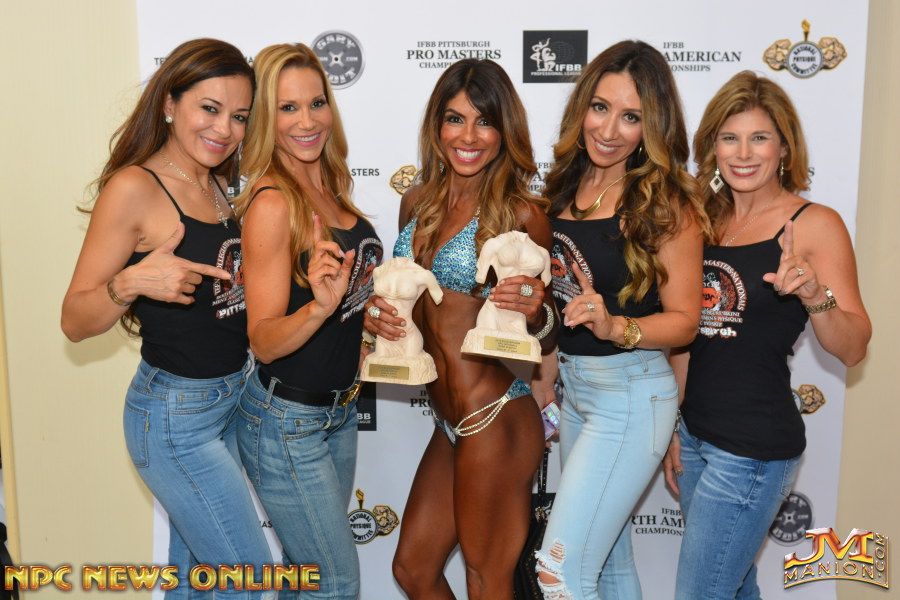Cheat To Win?
The Pros and Cons of Cheat Meals and How to Get the Most Out of Them.
By: Justine Moore, National Level NPC Bikini Competitor, MET-Rx Athlete, Certified Personal Trainer and Nutrition Specialist. http://www.metrx.com
Credentials: Bachelor’s Degree in Psychology, NESTA Certified Personal Trainer, ISSA Certified Fitness Nutrition Specialist.
 One hot topic in the world of fitness and competing is always THE CHEAT MEAL. I know as competitors we all LOVE a good cheat meal, but we also LOVE looking ripped and staying as lean as possible… so the question is, can we literally have our cake AND eat it too?
One hot topic in the world of fitness and competing is always THE CHEAT MEAL. I know as competitors we all LOVE a good cheat meal, but we also LOVE looking ripped and staying as lean as possible… so the question is, can we literally have our cake AND eat it too?
Cheat meals can have positive effects physically, as well as mentally when working towards a fitness goal. However, there is a wide range of what’s considered a “cheat meal” and the positive effects will only take place when following certain guidelines for a cheat meal. Let’s be honest, an all-out cheat DAY or massive binge on Ben & Jerry’s isn’t doing anyone favors. (I wish!)
Cheat meals are also referred to as “treat meals,” “reward meals,” or “free meals” in the  industry. Some people do not like the term “cheat meal” as it implies you are doing something wrong, causing a distorted relationship with food and eating. Cheat meals are not to be confused with re-feeds as they often are. A cheat meal consists of something that is not on your usual diet plan, and is typically some type of junk food like pizza or a cheeseburger. A re-feed is a systematic increase in calories, usually 20-50%, done over a period of 8 hours or more. Re-feeds are usually done with cleaner food sources, especially carbohydrates.
industry. Some people do not like the term “cheat meal” as it implies you are doing something wrong, causing a distorted relationship with food and eating. Cheat meals are not to be confused with re-feeds as they often are. A cheat meal consists of something that is not on your usual diet plan, and is typically some type of junk food like pizza or a cheeseburger. A re-feed is a systematic increase in calories, usually 20-50%, done over a period of 8 hours or more. Re-feeds are usually done with cleaner food sources, especially carbohydrates.
 In the argument against cheat meals. They can absolutely derail some people during contest prep. The leaner you are the MORE effective a cheat meal will be, so if you have a large weight-loss or fat-loss goal you may want to forgo a weekly cheat until you reach a lower body fat level. Physically a cheat meal increases blood insulin levels, which decreases fat oxidation, so you need to assess how your body responds and decide if the benefits outweigh the drawbacks of having regular cheat meals. Psychologically speaking, they can have a negative impact on some dieters as well. Some people find it is easier for them to stay on track with their diet plan if they go without cheat meals altogether. Sometimes getting a taste of junk food will increase cravings, making it harder to resume a diet post-cheat meal.
In the argument against cheat meals. They can absolutely derail some people during contest prep. The leaner you are the MORE effective a cheat meal will be, so if you have a large weight-loss or fat-loss goal you may want to forgo a weekly cheat until you reach a lower body fat level. Physically a cheat meal increases blood insulin levels, which decreases fat oxidation, so you need to assess how your body responds and decide if the benefits outweigh the drawbacks of having regular cheat meals. Psychologically speaking, they can have a negative impact on some dieters as well. Some people find it is easier for them to stay on track with their diet plan if they go without cheat meals altogether. Sometimes getting a taste of junk food will increase cravings, making it harder to resume a diet post-cheat meal.
 Now let’s consider the arguments FOR cheat meals. Cheat meals can have physical benefits for athletes with rigorous training schedules, and can be especially beneficial for low-calorie or low-carb dieters who need to replenish depleted glycogen in the muscles and fire up their metabolism by increasing leptin, T3 and T4 (thyroid hormones). Your body adapts quickly to a set amount of daily food intake, so strategically throwing in additional calories certain days will force your body to increase your metabolism to burn off the meal, then will STAY at that increased level the days following, when you resume your diet. Furthermore, studies conducted on the effects of an overeating show exercise-trained people store more carbohydrate (as glycogen), and burn more fat, while non-exercisers store more fat and burn more carbohydrate.
Now let’s consider the arguments FOR cheat meals. Cheat meals can have physical benefits for athletes with rigorous training schedules, and can be especially beneficial for low-calorie or low-carb dieters who need to replenish depleted glycogen in the muscles and fire up their metabolism by increasing leptin, T3 and T4 (thyroid hormones). Your body adapts quickly to a set amount of daily food intake, so strategically throwing in additional calories certain days will force your body to increase your metabolism to burn off the meal, then will STAY at that increased level the days following, when you resume your diet. Furthermore, studies conducted on the effects of an overeating show exercise-trained people store more carbohydrate (as glycogen), and burn more fat, while non-exercisers store more fat and burn more carbohydrate.
Cheat meals can help your mental game as well. It can be difficult and overwhelming for people to follow a diet plan 7 days a week for an extended period of time, such as 12-week contest prep. Sometimes a small amount of your favorite foods can boost your mood and make you push HARDER in the gym prior to, as well as after the meal.
 As a competitor it is extremely important to be honest with yourself and assess if cheat meals are right for you. For some, they do more harm than good, for others it keeps them sane and enhances their contest prep. Personally, I have competed in 14 competitions to date and I have done contest prep both with and without cheat meals. I have found that I am better off with a weekly cheat meal, up to 3 weeks out from a competition. This is for several reasons, but one of them is because I found that AFTER contest preps without any cheat meals I am much more likely to go overboard when coming off my diet. The longest I dieted without a single cheat was 14 weeks, and that was also my worst post-show rebound. I believe that scheduling cheat meals throughout prep helps me both physically and mentally.
As a competitor it is extremely important to be honest with yourself and assess if cheat meals are right for you. For some, they do more harm than good, for others it keeps them sane and enhances their contest prep. Personally, I have competed in 14 competitions to date and I have done contest prep both with and without cheat meals. I have found that I am better off with a weekly cheat meal, up to 3 weeks out from a competition. This is for several reasons, but one of them is because I found that AFTER contest preps without any cheat meals I am much more likely to go overboard when coming off my diet. The longest I dieted without a single cheat was 14 weeks, and that was also my worst post-show rebound. I believe that scheduling cheat meals throughout prep helps me both physically and mentally.
If you decide to work in some cheat meals throughout your on season (or off season) there are some tricks for maximizing the benefits and minimizing the damage. Here are my suggestions:
1) Plan ahead what you are going to have. Set limits ahead of time and stick to them. If you find a huge restaurant menu to be overwhelming, or the dessert tray too tempting to resist, you may want to consider getting take-out so you are eating ONLY what you planned. Even better, you can prepare your food at home so you know EXACTLY what you are taking in.
2) Assess what foods work best for you. Again, the idea is to use a cheat meal to ENHANCE your prep- so find what foods boost your workouts the following days. For example, my body responds well to red meat, so steak or a burger does wonders for my strength and energy levels. Once you find what works for you, you might want to have that every week, as you will find other foods do NOT necessarily agree with your body and can deprive you of energy the following days. Cheat meals do not necessarily need to be really “dirty” junk food… Personally I avoid anything greasy, fried, sugary, or high in sodium during my prep. The closer I get to a competition, the more moderate my “cheats” become.
3) Find out what TIME works best for you to have a cheat. Some people have their cheat meals post-workout, which is an ideal time since exercise lowers your blood sugar levels and depletes your muscles of glycogen, making you more likely to store the excess calories as carbohydrate in the muscles rather than storing fat. I have found what works best for me is saving my cheat meal for Sunday evening. I use it as a time to enjoy a nice meal with family and friends, so I don’t feel completely deprived of those “normal” social interactions during contest prep. I found that if I have a cheat earlier in the weekend, Friday or Saturday, it makes me want to CONTINUE cheating through the rest of the weekend. However when I have a cheat on Sunday night I feel satisfied, but wake up every Monday morning ready to tackle another week of hard training and following my diet plan. Find out what works best for you and then stick to it.
4) Eat your normal meals leading up to a cheat meal. Do NOT make the mistake of trying to starve yourself to “SAVE” your calories for your cheat- it doesn’t work that way! If anything that will only work AGAINST you because for one, your body will be more likely to go into fat storage mode if it thinks it’s being deprived of fuel. Second, you will be more likely to OVERINDULGE if you are ravished by the time you get to your cheat meal. It is best to eat normal meals, especially foods high in protein and fiber that provide satiety so you don’t overeat, and also these nutrients stabilize blood sugar levels through the day.
5) Drink plenty of WATER before, during and after a cheat meal. Most cheat meals are higher in sodium and carbohydrates than what your body is used to, making you prone to water retention. Holding water CAN increase strength levels, helping make your body more anabolic (hence the effectiveness of creatine supplementation), however for most competitors’ water retention is unpleasant and unwanted. Drinking plenty of water will help minimize this effect.
6) Most importantly: GET BACK ON TRACK RIGHT AWAY! Have your planned cheat and be DONE with it. Use it to FUEL your workouts and push to a new level with your training each week. The next day do NOT try to reduce your calories to make up for what you ate- this will only work against you.
In conclusion, if you find a weekly cheat meal is becoming a “crutch”, you are obsessing over it, you feel you are NOT making physical progress week to week, or you find cheat meals to be too much of a slippery slope and you are overindulging, I would suggest taking them out. What works for one competitor may not be effective for another, so you have to decide what will be best for you. I highly suggest discussing whether a cheat meal is right for you with your coach to help you make a more unbiased decision.
Always consult your doctor before beginning this or any training or diet/supplement program.
It is important to check with your healthcare practitioner before beginning any diet or exercise program.
These programs may not be appropriate for all individuals.
The content we provide is to help you broaden your understanding and knowledge of the health and fitness topics discussed on our website. This information should not be considered to be exhaustive of a particular topic, and should never be used in place of a visit or call to, consultation with or advice from your physician or other health care provider. We strongly recommend that you consult a health care professional prior to using any information or advice contained on this website that sets forth, illustrates, or suggests a particular diet, fitness program, workout regimen or activity. Further, we do not recommend the self-management of health problems because of the advice or recommendations contained in this magazine. You should never disregard medical advice or delay in seeking it because of something you have read on this website.
We do not assume any liability for injuries that may occur while using any information contained on this website, regardless of whether a doctor was consulted.





